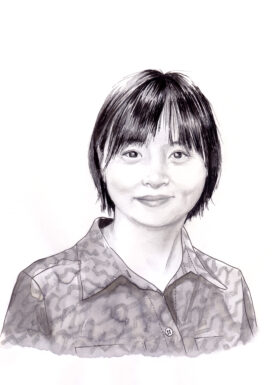-
Ammodo Science
Award for groundbreaking research2024 -
Ammodo Science Award
The Ammodo Science Award for groundbreaking research is intended to stimulate potentially groundbreaking research. Such research is usually the result of team work, and for that reason this Award is for research being carried out by a group of researchers working together, and is intended to recognise the contribution of every member of the group. The Award is presented every two years in four scientific domains: Biomedical Sciences, Humanities, Natural Sciences and Social Sciences.
-
Nomination & Selection
Each edition, the Ammodo Science Award for groundbreaking research includes a cash prize of 1,600,000 euros for each of the science domains Natural Sciences and Biomedical Sciences and a cash prize of 800,000 euros for each of the science domains Humanities and Social Sciences. The rectors of the fourteen Dutch universities affiliated to Universities of The Netherlands (UNL) may nominate a maximum of one research project per scientific domain.
-
Winners
The Ammodo Science Award for groundbreaking research focuses on potentially groundbreaking research and ensures that all researchers involved in the winning project are recognised and rewarded.
Jingyuan Fu
Laureate Biomedical Sciences 2023

Jingyuan Fu (1972) studied Bioinformatics at the University of Groningen, where she obtained her PhD with honours in systems genetics in 2007. After two years of postdoctoral work on complex genetics at the University Medical Center Groningen (UMCG), she started her own independent research group in 2009. She is currently professor of systems medicine at the UMCG.
Fu has received numerous prestigious grants, including NWO Veni, Vidi, Vici and ERC-Consolidator fellowships. She has been a ‘Highly Cited Researcher’ on Web of Science since 2020. She was voted ‘Scientist of the Year: Fundamental Research’ in 2022 by the R-Institute in China for her outstanding contributions to research on the gut microbiome.
WebsiteResearch focus
Combining insights from genetics, microbiology and bioinformatics, Jingyuan Fu investigates the gut microbiome in relation to disease and health. She particularly focuses on complex diseases such as obesity and cardiovascular disease.
The influential gut microbiome
Two thousand years ago the Greek physician Hippocrates claimed that all diseases start in the gut. But why this is indeed so, and how much influence the gut actually has on our health, has only been known for about a decade. In particular, it is now accepted that the gut microbiome – the billions of bacteria found in a person’s gut – is crucial to our health.
Jingyuan Fu is regarded worldwide as a pioneer in terms of research on the gut microbiome. In recent years, she and her team have investigated the role played by the gut microbiome in causing diseases and in maintaining health. She has impressively demonstrated that the gut microbiome can be manipulated by both dietary interventions and certain drugs. This makes the microbiome an important starting point for disease prevention and treatment.
To map the gut microbiome in great detail and understand the role of bacterial processes in the development of diseases, Fu’s research includes the use of unique datasets of biomaterial and data from the largest Dutch population cohort LifeLines. This has given her the opportunity to investigate the composition and function of the microbiome of more than 8200 Dutch people. For each individual, Fu analysed the DNA of all microorganisms present in the gut and then related this information to genetic and phenotypic characteristics. Her discovery that the microbiome is mainly shaped by the influence of environmental factors such as a person’s diet, medication and family and lifestyle was groundbreaking.
Another influential discovery by Fu was that the composition of the microbiome affects BMI (body mass index), metabolism and the immune system. Fu and her team also identified gut bacteria and bacterial genes that produce health-related metabolites – a type of small molecules. The composition of the microbiome and the metabolites it produces help explain the risks of obesity and cardiovascular disease. These fundamental findings form the basis for new organ-on-a-chip models that Fu is helping to develop. These are very small pieces of cultured living tissue along which runs an artificial blood stream. Such chips give Fu the chance to study how, for example, a food component or a drug, in interaction with bacteria, affects the liver and the gut.
Fu is not only an expert in genetics and microbiology, but also in bioinformatics and statistics. This gives her an edge over other scientists in this highly complex research field. Ultimately, Fu wants her work to lead to individually tailored approaches to complex diseases, based on the interaction between a person’s genetic susceptibility and their gut bacteria.